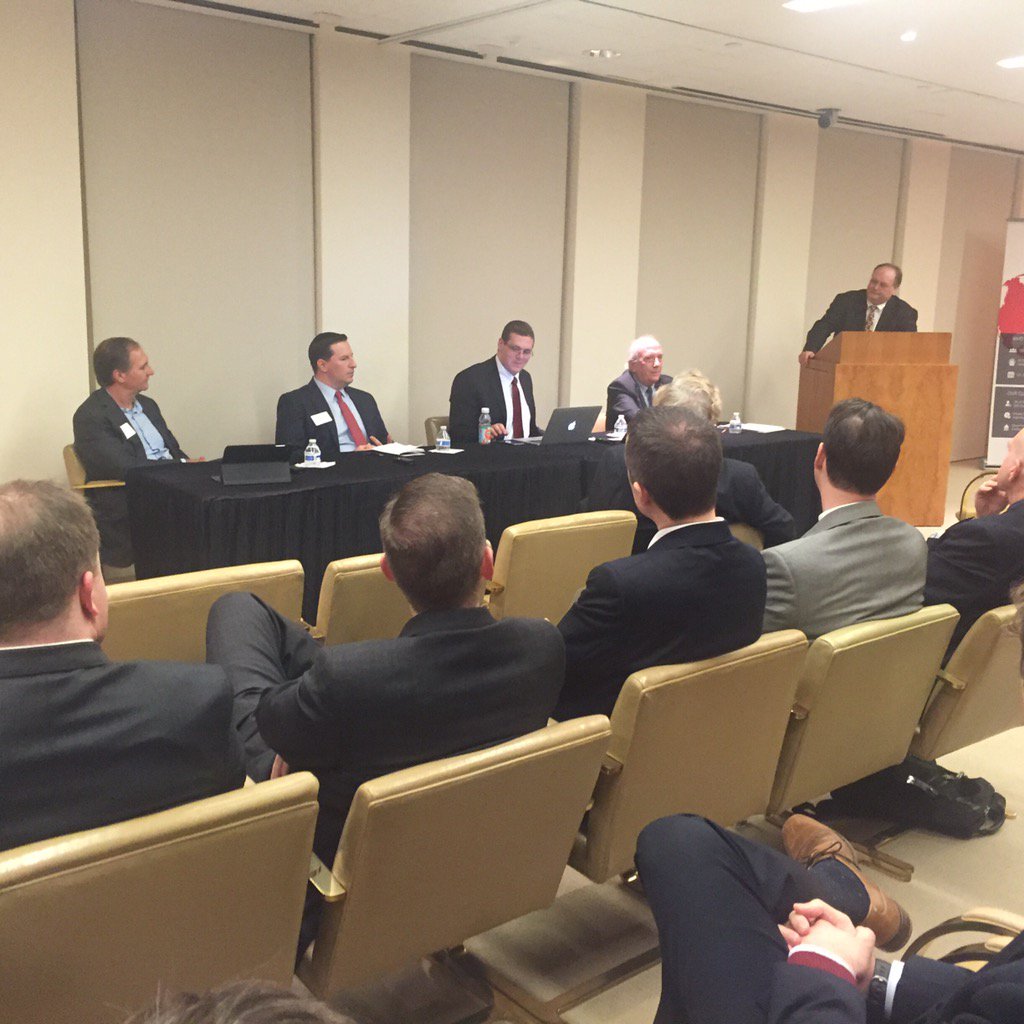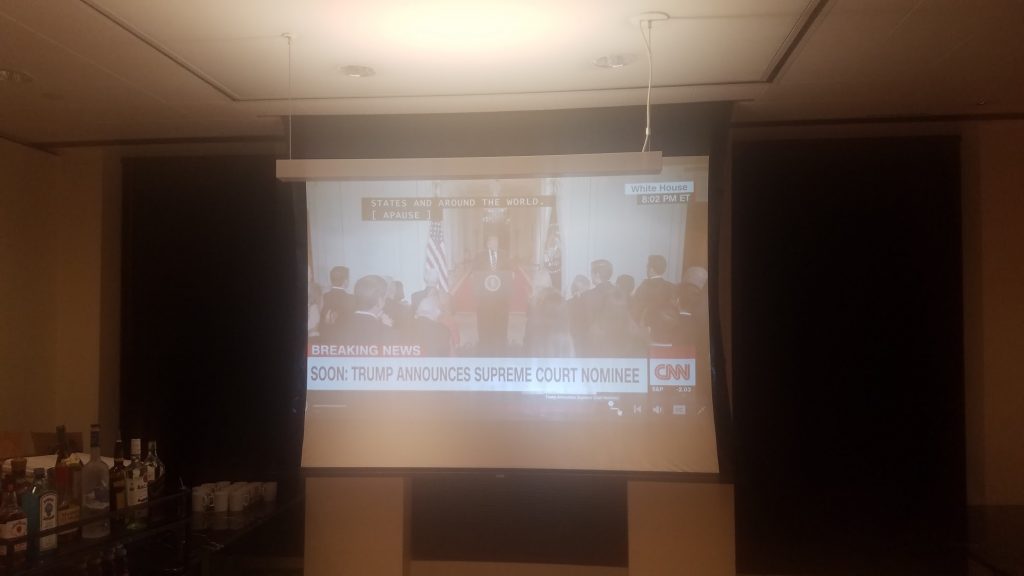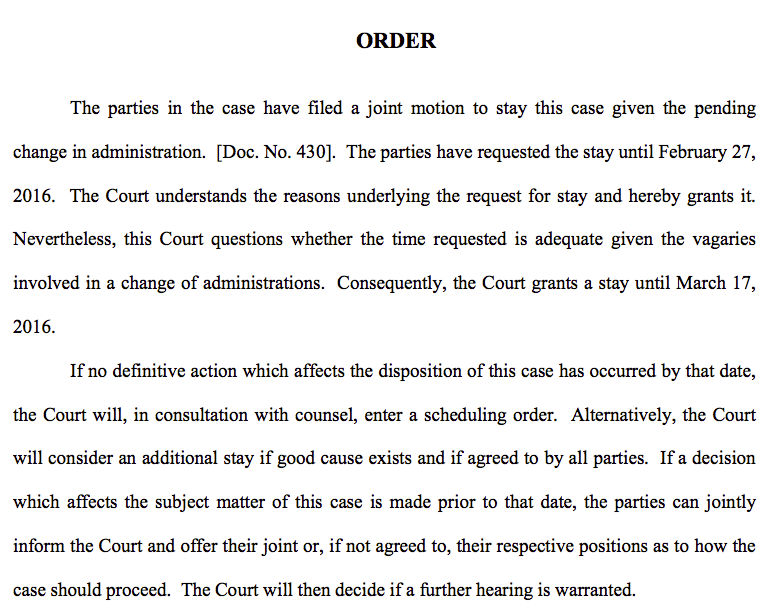In the remainder of the article, I walked through a number of the Court’s Establishment Clause cases, which look at various forms of extrinsic evidence to ascertain the purpose of the action.
First, in Epperson v. Arkansas, the Court relied on an advertisement placed in a newspaper, in support of the law forbidding the teaching of evolution in public schools.
Second, in Stone v. Graham, the Court invalidated a Kentucky law that required posting of the Ten Commandments in public schools. The Court offered no explanation as to why there was a forbidden purpose, stating perfunctorily, “the pre-eminent purpose for posting the Ten Commandments on schoolroom walls is plainly religious in nature.” The Court pronounced that “no legislative recitation of a supposed secular purpose can blind [them] to the fact” that the Ten Commandments are a religious symbol.
Third, in Santa Fe Independent School District v. Doe, the Supreme Court found that a student-led, student-initiated prayer before high school football games violated the First Amendment and rejected the government’s proffered secular purpose. Here too, the Court cited post-enactment legislative history.
Fourth, in Wallace v. Jaffree, the Court struck down a law requiring a moment of silence in public schools, concluding that it lacked a clearly secular purpose. Unlike Epperson and Stone, where the Court did not even attempt to analyze legislative history, Justice Stevens devoted several pages of Jaffree to examining a detailed history of the enactment of the statute. Alas, much of it was post-enactment legislative history from a single member.
Chief Justice Burger strongly rebuked Justice Stevens’s strong reliance on this post-enactment legislative history and proclaimed, “The sole relevance of the sponsor’s statements, therefore, is that they reflect the personal, subjective motives of a single legislator. No case in the 195-year history of this Court supports the disconcerting idea that post-enactment statements by individual legislators are relevant in determining the constitutionality of legislation.”238
In general Burger is right, but the statements of the “sole organ” of government are, I think, especially relevant. I have argued for several years that President Obama’s statements about the scope of his executive power, with respect to DAPA and DACA are relevant to the constitutional analysis. In my article on the Take Care Clause, I wrote:
This conclusion is bolstered by the fact that prior to the defeats of DACA and DAPA, President Obama—the “sole organ” of the Executive Branch—consistently stated that he lacked the power to defer the deportations of millions by himself.19 Once the bills were voted down, however, he conveniently discovered new fonts of authority.
And, as I noted in the Harvard Law Review:
When the President speaks for the nation, he speaks with one voice as the “sole organ” of the United States govern- ment.411 This oft-cited dictum from United States v. Curtiss-Wright Export Corp.,412 originally voiced by Representative John Marshall in 1800, is seldom taken literally.413 Usually, courts listen to the “sole organ” speak through the form of general policy statements issued by an executive branch agency, or even developed by the Justice Department during the course of litigation. Seldom do we see such specific reflections from the Commander in Chief himself. Here, the President personally explained the contours of his own authority on a consistent and reasoned basis. That the comments of the only person elected to the highest office in the land were unscripted — and not prepared by an army of speechwriters — elevates this discourse. Further, these were not simply barbs about policy disputes, but explications about his presidential oath to “preserve, protect, and defend the Constitution of the United States.”414 As the President acknowledged during a town hall meeting on police violence, “I’m aware that my words matter deep- ly.”415 This may be particularly true when the President is, to borrow a phrase from Justice Frankfurter, “learned . . . in the law.”416 Indeed, President Obama has opined that his experience as an attorney makes his statements on executive power more authoritative than those made by members of Congress who are not “constitutional lawyers.”417 Per- haps most importantly, President Obama has defined the bounds of his own power in response to questions from we the people, the ultimate sovereigns in the United States and the source of his authority.418 These presidential pronouncements are not hollow utterances.
Uniformly, defenders of DAPA told me that these informal statements are irrelevant, because they represent political statements that are not meant to be informed legal analyses. Indeed, there was no precedent for this conclusion–Hamdan is to the contrary–a point which I conceded in my imagined opinion by Justice Scalia in U.S. v. Texas:
The president’s public statements, while not dispositive of his constitutional obligations, are relevant to the Take Care Clause calculus. Critically, these statements-against-interest are not “self-serving press statements.” Youngstown, 343 U.S. at 647 (Jackson, J., concurring); cf. Hamdan v. Rumsfeld, 548 U.S. 557, 623 n.52 (2006) (refusing the invitation to “defer[] to comments made by [Executive] officials to the media”).
I continue to maintain that these statements are relevant to ascertain pretext. (I am working on a piece titled “Sole Organ” of Social Media–use your imagination what that’s about).
One note in closing. Virtually all commentators assume that the Establishment Clause controls the President’s decisions concerning admissibility–an antecedent question to visa issuance–in the same fashion as does the Equal Protection Clause for people in the United States. This is not self-evident, and to my knowledge, no court has ever held this to be the case. The President has in many cases, under his Article II powers, favored some religious groups over others–Soviet Jews, for example, were preferred over Soviet Christians, precisely because of threats of religious persecution. Additionally, these cases have the chance to backfire on the ACLU. If the Supreme Court ultimately upholds the President’s decisions, citing his Article II powers over national security, as well as those powers delegated by Congress, it will further cement the plenary power of the Executive Branch over immigration.


